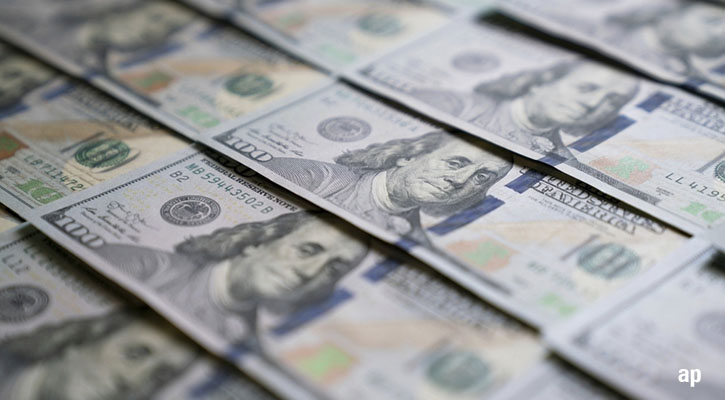
Fitch downgraded the US' highest credit rating on Tuesday, citing a growing federal debt burden and an "erosion of governance" that has manifested in debt limit standoffs.
“The rating downgrade of the United States reflects the expected fiscal deterioration over the next three years, a high and growing general government debt burden, and the erosion of governance relative to ‘AA’ and ‘AAA’ rated peers over the last two decades,” the rating agency said.
The decision to downgrade the US from AAA to AA+ sparked a fiery rebuttal from the White House, with press secretary Karine Jean-Pierre saying the move "defies reality". Treasury secretary Janet Yellen said in a separate statement that she "strongly" disagreed with Fitch as well, calling the change "arbitrary and based on outdated data."
It is the first such downgrade by a major ratings company in more than a decade. A debt ceiling impasse in 2011 saw S&P lower Washington's AAA rating, drawing bipartisan outrage.
Market reaction on Wednesday has been varied: relatively muted in Europe but more pronounced in Asia: the EuroStoxx 50 is off around 1%, while the Nikkei 225 and the Hang Seng index were down 2% overnight. Early US stock futures point to a weak start on Wall Street.
Ratings agency DBRS, which is owned by Morningstar, last week afffirmed the US's AAA rating, concluding a period when the rating was "Under Review with Negative Implications". DBRS said that the signing of the Fiscal Responsibility Act in June enables the US Treasury to pay the government's debt obligations on time - and that credit risk from future debt obligations remains very low.
The ratings agency said:
"The AAA ratings reflect the United States’ considerable credit strengths, including the scale, diversification, and resilience of the US economy, the strength of the country’s governing institutions, and the reserve currency status of the US dollar. Nevertheless, we continue to monitor how political polarisation could adversely impact U.S. credit fundamentals over time."
Why Do Credit Ratings Matter?
Governments, like companies, are assigned ratings by the agencies based on their credit worthiness. The better the credit rating, the cheaper the borrowing costs. They also have a symbolic value too, because countries with a AAA credit rating are considered the elite of sovereign debt. Given the centrality of the US to the global financial system, this vote of no confidence matters to markets.
While the US government came close to defaulting on its debt this year, the country's debt is considered to be "safer" than others for bond investors. If you buy a US Treasury, you expect to get the coupon paid for the time of the investment and receive your capital back at the end. Highly rated sovereign debt is considered "risk free" in that governments, unlike companies, are extremely unlikely to default.
And the yield that the US has to pay to investors has risen sharply since the Federal Reserve began its interest rate rising programme. Two-year bonds currently pay 4.85%, up from around 3% a year ago, while 10-year Treasuries pay just over 4%, from 2.75% last year. Many asset managers hold US Treasuries for yield and as ballast in times of uncertainty; they are often considered a "safe haven", like the US dollar, in times of crises.
In reducing the country's credit rating, Fitch has increased the costs of servicing this debt further, but this is something Western governments across the board are facing as interest rates go up. But this increase in yield makes the asset class more attractive.






:quality(80)/cloudfront-us-east-1.images.arcpublishing.com/morningstar/GJMQNPFPOFHUHHT3UABTAMBTZM.png)

:quality(80)/cloudfront-us-east-1.images.arcpublishing.com/morningstar/D72C2ABHNRGTJHVPQ5FG5Z7UHE.jpg)
:quality(80)/cloudfront-us-east-1.images.arcpublishing.com/morningstar/6ZMXY4RCRNEADPDWYQVTTWALWM.jpg)










